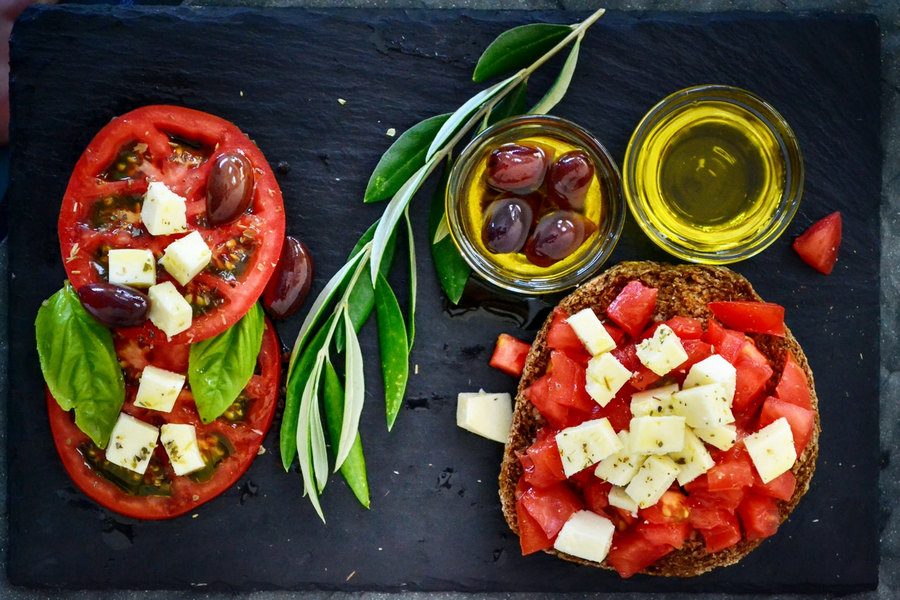We’ve all heard of brain foods, but how many people really know how food affects the brain and overall health of our bodies?
As you age, your brain shrinks. That’s a scientific fact. And with that shrinking comes cognitive decline: memory loss, mental fogginess, and an inability to think quickly or perform tasks as efficiently as someone younger.
But what if there was something we could do about it? What if science proves a way that the way we eat can preserve our brains, so they stay sharp for much longer than expected?
A recent study in the Journal of Alzheimer’s Disease found that a person’s diet may affect their brain health. The research showed that people who followed diets high in fat, sugar, and cholesterol were more likely to have increased levels of beta-amyloid proteins.
These proteins are linked to impaired cognition and memory loss. Beta-amyloid is a protein that clumps together with other proteins in the brain, causing plaque build-up.
Many other studies suggest our diet affects our brains’ ability to function. Researchers have been interested in finding a diet plan that can halt, slow, or alleviate symptoms of neurodegeneration.
One way to understand how food affects the brain is to learn about the Mediterranean diet and the MIND diet.

The Mediterranean Diet
The Mediterranean diet is well-known for its benefits to heart health. New research suggests that it may also have a significant influence on neurodegenerative diseases. Previous studies have shown that a Mediterranean diet can reduce the risk of cardiovascular disease by nine percent.
A new study has found that the diet could also reduce the risk of dementia by 36%. The research showed that people who followed diets high in fat, sugar, and cholesterol were more likely to have increased levels of beta-amyloid proteins. These proteins are linked to impaired cognition and memory loss.
The Mediterranean diet is rich in fresh vegetables like leafy greens; nuts like almonds, walnuts, pistachios, and hazelnuts; whole grains such as barley and brown rice; legumes such as lentils, beans, and chickpeas.

The MIND Diet
The late Dr. Martha Clare Morris and colleagues created the MIND diet to lower the risk of Alzheimer’s disease through food choices.
Healthy brain power foods make up the MIND diet. These include:
- Green leafy vegetables like kale and spinach
- Nuts like walnuts and almonds
- Olive oil (not butter)
- Berries like blueberries and strawberries
- Whole grains, such as brown rice or quinoa
- Good fats found in avocado
- Fish oils
- Eggs
- Tofu
- Oatmeal for breakfast every day with cinnamon sprinkled on top for variety.
In addition, the MIND diet recommends drinking wine (up to one glass per day) and getting a good night’s sleep.
The MIND diet is based on a healthy person’s diet, so it’s not recommended for people with diabetes or chronic kidney disease. It limits how much red meat you can eat each week but has no restrictions about chicken, turkey, lamb, or pork.
The lifestyle recommendations are:
- Exercise at least three times per week
- Stay socially active
- Manage your stress levels by taking time out from work every day for a few minutes of meditation or deep breathing exercises.
Be sure to get enough omega-rich fats. If you don’t like eating oily fishes regularly, Try nuts, such as walnuts, or – try fish oil supplements.

What Do the Mediterranean Diet and MIND Diet Have in Common?
All these diets are designed around natural, unprocessed food choices, which contain more of the vitamins, minerals, and omega-three fatty acids our brains need to function.
Both the Mediterranean diet and its blood-pressure-reducing cousin, the MIND diet, include promising data for aiding neurodegeneration in those with Alzheimer’s or other dementias.
Studies have shown that seniors who closely follow the MIND diet have a reduced risk of Alzheimer’s disease altogether, noting a much slower rate of cognitive decline. However, scientists and doctors continue clinical trials to identify how these diets affect cognitive ability.
Although scientists are unsure why the Mediterranean diet may help the brain, researchers have noted that cardiovascular health is linked to central neurological health.
In other words, if an activity helps to support heart health, it also supports brain health. Diets that are high in leafy greens, berries, whole grains, fish, legumes, wine, and olive oil are linked to dementia prevention.
Regarding the suggestion of a glass of wine a day, caregivers must be careful with the amount of alcohol seniors drink, as the body metabolizes alcohol differently as we age. These diets limit red meat, sugar, dairy, and other alcohol.
Additionally, diets with similar food groups to the MIND diet may increase anti-inflammatory and antioxidant nutrients to protect the brain. In seniors with Alzheimer’s, the brain develops “plaques” and “tangles,” which can be prevented by enlisting a diet high in omega-3 fats such as the MIND diet.
In adults with Alzheimer’s, the brain’s cortical region tends to shrink. In an observational study on the Mediterranean diet, researchers found that cognitively normal adults who follow the Mediterranean diet closely had thicker cortical brain regions than those who followed a western diet.
As changes in the brain can occur years before the first symptoms of Alzheimer’s disease, it is crucial to prevent or delay dementia symptoms using holistic methods such as eating a balanced diet and exercising. Studies show that dietary interventions introduced during midlife lead to better outcomes in old age.

Applewood Our House Cares About Our Residents’ Health
At Applewood Our House, our memory care staff is dedicated to feeding residents a nutritious, well-balanced diet. Residents are even able to customize their diet plans to their liking. We strive to stay up-to-date on new studies showing evidence of cognitive benefits through healthier eating patterns. While we care for your loved ones, here are the worst foods for your brain to care for your cognitive health:
- Sugary Drinks
- Refined Carbs
- Aspartame
- Trans Fats
- Processed Foods
- Alcohol
- Fish high in mercury

Diets are for Healthy Mind and Body – Many People Forget to Exercise
The Mediterranean diet and MIND diet are not just about eating the right foods; both also encourage physical exercise. Exercise can strengthen connections between neurons and help to delay or prevent cognitive decline.
However, while many people know that aerobic exercise, such as walking helps heart health, few are aware of its effects on brain function.
A study published in July 2017 concluded that those who walked 30 minutes a day had significantly less age-related loss of gray matter volume than their sedentary counterparts with the same risk factors for cardiovascular disease.
In addition, there are other things we should understand about our bodies. Sleep patterns affect learning ability, moods, and social interactions, and alter stress levels. All three play an essential role in the health of our brain and should be taken into consideration with any plan to improve it.

How Food Affects the Brain – Conclusion
Seniors need to eat a balanced diet to keep their brains healthy. But, aerobic exercise can also help stimulate brain function and maintain cognitive health as they age.
So it’s not enough to be on the right track with your diet; you need both physical activity and good nutrition if you want your brain power intact well into your golden years.
Contact Applewood Our House Assisted Living Memory Care today so we can work together on developing an effective senior wellness program for your loved one!
Please note that this article on How Food Affects the Brain is for educational purposes but not intended to replace professional medical advice — consult your doctor before making any changes to your diet or exercise that could affect your general health or medical needs.




